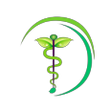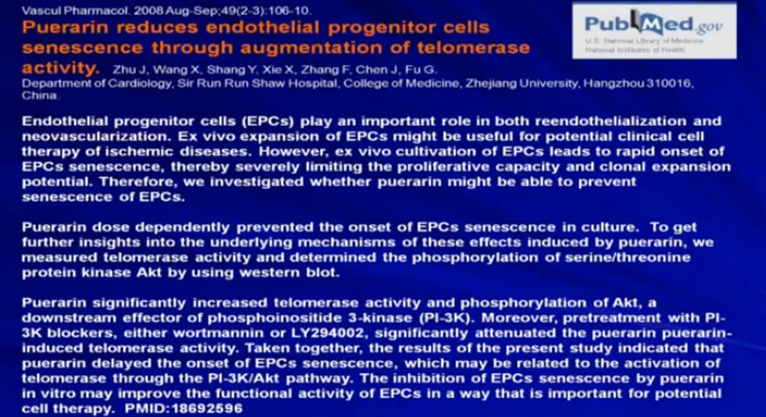Herbs and supplements & their suggested actions
The following plants and supplements may help to address some imbalances by directly or indirectly improving cell function. However they should only be seen as possible adjuncts to an individualised treatment of the whole person. Seeking advice from a qualified herbalist or endobiogenic practitioner is strongly advised.
The hyperlinks below will lead you to more detailed information about each plant and its action although neither the list of plants nor the breadth of therapeutic actions listed are complete in any way. Plants are far more complex in their actions than drugs and typically have a wide range of actions and applications. This makes plants ideal to bring complex physiological processes back into balance and thus reduce the need for symptoms or diseases to develop. Degenerative processes linked to the ageing process (i.e.dementia and other chronic inflammatory diseases) can be prevented, slowed down and/or made better manageable with the use of herbs, diet, nutritional supplements, lifestyle choices, mindfulness practices, use of PEMF and exercise. With professional guidance they can also be used to reduce the side effect of drugs.
Herbs
Dementia is a metabolic problem that involves the whole body-mind system with complex hormonal feedback loops.
Treatment requires a whole system approach that treats the individual person rather than the disease.
Endobiogenics is such a whole system approach which is based on the understanding of complex hormonal feedback loops.
Plant remedies, diet and life style changes are used to balance the neuro-endocrine system. Endobiogenic practitioners have identified common patterns of imbalance in neuro-endocrine function in the biology of function results in patients suffering from Alzheimers disease. Such common patterns may include what is described in the above 2 slides: Relative functional estrogen deficiency; functional thyroid insufficiency; desynchronization of growth factors; mitchochondrial strain.
The following plants and supplements may help to address some imbalances by directly or indirectly improving cell function. However they should only be seen as possible adjuncts to an individualised treatment of the whole person. Seeking advice from a qualified herbalist or endobiogenic practitioner is strongly advised.
The hyperlinks below will lead you to more detailed information about each plant and its action although neither the list of plants nor the breadth of therapeutic actions listed are complete in any way. Plants are far more complex in their actions than drugs and typically have a wide range of actions and applications. This makes plants ideal to bring complex physiological processes back into balance and thus reduce the need for symptoms or diseases to develop. Degenerative processes linked to the ageing process (i.e.dementia and other chronic inflammatory diseases) can be prevented, slowed down and/or made better manageable with the use of herbs, diet, nutritional supplements, lifestyle choices, mindfulness practices, use of PEMF and exercise. With professional guidance they can also be used to reduce the side effect of drugs.
Herbs
The most common plants of Indian (Ayurvedic) origin used in the treatment of glucose metabolism and thus of benefit in Alzheimers disease.
More information on blood glucose regulating plants here.
Supplements:
Chromium
Alpha Lipoic acid
Niacinamide (B3)
B vitamins
Vit B12
Antioxidants
Omega 3
Omega 7
Serrapeptase
CoQ10
Vit D3
Quercetin : provides antioxidant protection from damaging free radicals and thus plays a natural role in maintaining optimal health. Organic Sulfur (MSM): It is usually taken as a powder or in crystal form. Build up gradually from 1 gram to 5- 10 grams a day depending on body weight. The build-up is needed so that the digestive tract gets used to processing it.
The following plants and supplements may help to address some imbalances by directly or indirectly improving cell function. However they should only be seen as possible adjuncts to an individualised treatment of the whole person. Seeking advice from a qualified herbalist or endobiogenic practitioner is strongly advised.
The hyperlinks below will lead you to more detailed information about each plant and its action although neither the list of plants nor the breadth of therapeutic actions listed are complete in any way. Plants are far more complex in their actions than drugs and typically have a wide range of actions and applications. This makes plants ideal to bring complex physiological processes back into balance and thus reduce the need for symptoms or diseases to develop. Degenerative processes linked to the ageing process (i.e.dementia and other chronic inflammatory diseases) can be prevented, slowed down and/or made better manageable with the use of herbs, diet, nutritional supplements, lifestyle choices, mindfulness practices, use of PEMF and exercise. With professional guidance they can also be used to reduce the side effect of drugs.
Herbs
Dementia is a metabolic problem that involves the whole body-mind system with complex hormonal feedback loops.
Treatment requires a whole system approach that treats the individual person rather than the disease.
Endobiogenics is such a whole system approach which is based on the understanding of complex hormonal feedback loops.
Plant remedies, diet and life style changes are used to balance the neuro-endocrine system. Endobiogenic practitioners have identified common patterns of imbalance in neuro-endocrine function in the biology of function results in patients suffering from Alzheimers disease. Such common patterns may include what is described in the above 2 slides: Relative functional estrogen deficiency; functional thyroid insufficiency; desynchronization of growth factors; mitchochondrial strain.
The following plants and supplements may help to address some imbalances by directly or indirectly improving cell function. However they should only be seen as possible adjuncts to an individualised treatment of the whole person. Seeking advice from a qualified herbalist or endobiogenic practitioner is strongly advised.
The hyperlinks below will lead you to more detailed information about each plant and its action although neither the list of plants nor the breadth of therapeutic actions listed are complete in any way. Plants are far more complex in their actions than drugs and typically have a wide range of actions and applications. This makes plants ideal to bring complex physiological processes back into balance and thus reduce the need for symptoms or diseases to develop. Degenerative processes linked to the ageing process (i.e.dementia and other chronic inflammatory diseases) can be prevented, slowed down and/or made better manageable with the use of herbs, diet, nutritional supplements, lifestyle choices, mindfulness practices, use of PEMF and exercise. With professional guidance they can also be used to reduce the side effect of drugs.
Herbs
- Agrimony - Increases insulin production, supports liver function, improves digestion. See Pubmed results for Agrimony and other herbs used to improve blood sugar regulation here.
- Ashwaganda - Anti-inflammatory, antitumor, antistress, antioxidant, immunomodulatory, hemopoietic, and rejuvenating properties . More info here.
- Avena sativa - thyroid stimulant, regulates the thyroid to the needs of estrogen, enlivens in the morning and helps sleep at night, improves carbohydrate metabolism and lowers blood sugar and bad cholesterol (LDL)
- Bacopa monnieri - Bacopa has a long history of use in Ayurveda and preclinical research studies have identified biological mechanisms by which it might protect the brain from aging and perhaps Alzheimer’s disease [3-9]
- Bitter Melon Extract - Improves glucose tolerance, suppresses postprandial hyperglycemia, and enhances insulin sensitivity Enhanced beta-cell activity, stimulation of the glycolytic pathway, and inhibition of glucose transportation in the small intestine have also been shown experimentally. More info here
- Burdock - Improves blood glucose metabolism, detoxifies blood. more info here
- Cinnamon Bark Extract (from Ceylon) - Insulin stimulating effect, antibacterial, antifungal . More info here .
- Eleutherococcus - Anti-inflammatory and restorative. In combination with other herbs suppresses the release of pro in-flammatory, Th1-, Th2-and Th17- derived cytokines. For more information see here.
- Fenugreek Seed Extract - Lowers total cholesterol, triglycerides, and low density lipoprotein (LDL). Also has estrogenic action. More info here.
- Gingko - Improves peripheral circulation, reduces blood sugar. More info here.
- Goats Rue - Reduces insulin resistance . Webmed result here.
- Gotu Kola - exhibits anti-anxiety activity and enhances mental function; causes a release in a growth factor for neurons called Brain-derived Neurotrophic Factor (BDNF). More info here.
- Gymnema Extract - Reduces insulin resistance. More info here.
- Lavender - Reduces excessive nervous system activity, helps sleep and relaxation. More info here.
- Neem - In a recently published study, a team of researchers examined the leaves of a tropical tree known as “neem” (Azadirachta indica) for its effects on Alzheimer’s disease. Raghavendra M, et al. Int J Appl Basic Med Res. 2013 Jan-Jun;3(1):37-47.
- Passionflower - Reduces anxiety, relaxes the nervous system and helps sleep
- Prickly Pear Extract - Reduces blood glucose and cholesterol. More info here and here
- Rhodiola - Stress protective, increases tolerance to mental exhaustion and enhances attention and mental endurance in situations of decreased performance. More info here
- Clary Sage - Estrogenic, neuro-protective, highly stable Omega 3 incl ALA (Alpha-Linolenic Acid), anti-inflammatory. More info here.
- Turmeric/Curcumin - As Alzheimer's worsens, millions of brain cells die from exposure to the protein toxins over time. Turmeric protects brain cells against these toxins and thus helps memory. Curcumin blocks the precursor proteins (oligimers) of the tau tangles and beta-amyloid plaques. Studies show that when these oligimers are suppressed, brain cells continue functioning. Curcumin is a powerful antioxidant and free-radical scavenger. It can decrease the harmful effects of oxidation and free radicals on brain cells. To improve absorption consume it with oil and black pepper. More info here.
- Pueraria Mirifica - known as a rejuvenating herb in Thailand called H.R.T. (Herbal Remedy from Thailand) Cognitive enhancing and neuro-protective effect. More information about this herb.
- Lycium barbarum/Wolfberry leaves - Neuroprotective effects that counter neuronal loss in neurodegenerative diseases. Polysaccharides extracted from wolfberry was able to protect neurons against beta-amyloid peptide toxicity in neuronal cell cultures, and retinal ganglion cells in an experimental model of glaucoma. A test-tube study showed that a fraction of polysaccharide from Wolfberry exerted significant neuroprotective effects on cultured cortical neurons exposed to glutamate. Glutamate excitotoxicity is involved in many neurodegenerative diseases including Alzheimer's disease. This fraction of polysaccharide has also been shown to protect rat cortical neurons against beta beta-amyloid.
The most common plants of Indian (Ayurvedic) origin used in the treatment of glucose metabolism and thus of benefit in Alzheimers disease.
More information on blood glucose regulating plants here.
Supplements:
Chromium
Alpha Lipoic acid
Niacinamide (B3)
B vitamins
Vit B12
Antioxidants
Omega 3
Omega 7
Serrapeptase
CoQ10
Vit D3
Quercetin : provides antioxidant protection from damaging free radicals and thus plays a natural role in maintaining optimal health. Organic Sulfur (MSM): It is usually taken as a powder or in crystal form. Build up gradually from 1 gram to 5- 10 grams a day depending on body weight. The build-up is needed so that the digestive tract gets used to processing it.
|
A review of Chinese traditional medicine Herbal formulations Yokukansan Yokukansan, or TJ-54, is a Kampo herbal remedy originating from the Chinese herbal formula Yigan San developed in the Song Dynasty for the treatment of Liver (Gan) dysfunction-induced agitation and restlessness in children. Yigan San consists of seven herbs, namely
This composition is also used in Yokukansan [46]. Since this remedy is used for the treatment of psychiatric disorder, the possible therapeutic effects on dementia symptoms are under investigation. |

